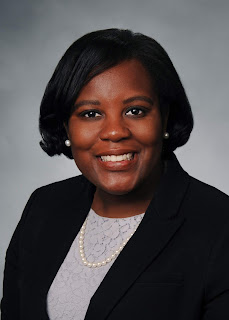Choudhry v. Fowlkes,
No. 1148, Sept. Term, 2017 (filed Nov. 1, 2019) (Judges Meredith, FRIEDMAN
& Eyler (Senior Judge, Specially Assigned))
In
2013, 22-year-old Yenita Owens died from complications related to a severe
infection in her leg. Owens' mother, Lolita Fowlkes, whom Owens lived with
before her death, filed a wrongful death action against various medical
providers who treated her daughter, including Dr. Shabbir Choudhry. Fowlkes sought both economic and non-economic
damages for the loss of her daughter's services. These services included
various household chores performed by Owens, such as washing dishes, vacuuming,
and running errands. At trial, Fowlkes testified that Owens would perform these
tasks for roughly 2 hours per day, that she had raised Owens as a single
mother, and that she planned to live with Owens forever.
Choudhry
moved three times for judgment as to Fowlkes' claim for damages for the loss of
Owens’ services. The trial court denied all three motions. After deliberation,
the jury found in Fowlkes’ favor and awarded her $500,000 in non-economic
damages and $500,000 in economic damages for Owens' loss of service.
Choudhry
appealed and argued that: (1) the household services that Fowlkes testified
Owens performed do not constitute a recoverable pecuniary loss; and (2) even if
such household chores can be recovered as a pecuniary loss, Fowlkes nonetheless
presented insufficient evidence to support any non-speculative damages award.
The Court of Special Appeals agreed with Choudhry and reversed the trial
court's decision.
Under
the wrongful death statute, a covered beneficiary may recover for both
pecuniary (i.e., economic) and non-pecuniary (i.e., non-economic) damages
resulting from the wrongful death of a family member listed in the statute. See
Spangler v. McQuitty, 449 Md. 33 (2016). To recover economic damages for
the loss of household service, a beneficiary must: (1) identify domestic
services that have a market value; (2) have reasonably expected the decedent to
provide the identified services, which—absent the decedent's legal obligation
to provide the services—will typically require evidence showing that the
decedent was regularly providing the services in the past; and (3) present some
evidence concerning the duration the decedent would have likely provided the
services. See United States v. Searle, 322 Md. 1, 7 (1991); Balt.
& O. R. Co. v. State, 63 Md. 135, 145-46 (1885); Emp'rs Liab.
Assurance Corp. v. Balt. & O. R. Co., 173 Md. 238, 244 (1937).
In
this case, the Court of Special Appeals found that Fowlkes failed the meet the
third element required to prove economic damages for the loss of household
services. While Fowlkes did testify that Owens performed various household
chores for 2 hours a day, she failed to specify the length of time that Owens
had been engaging in daily household chores. She also failed to provide
evidence to support her assertion that Owens planned to live with Fowlkes indefinitely
and would, therefore, continue to provide household services daily. Thus, while
Fowlkes may recover both types of damages that arise from the wrongful death of
Owens, she failed to provide sufficient evidence to submit her damages claim to
the jury.
--Jahnee Waller, Law Clerk



